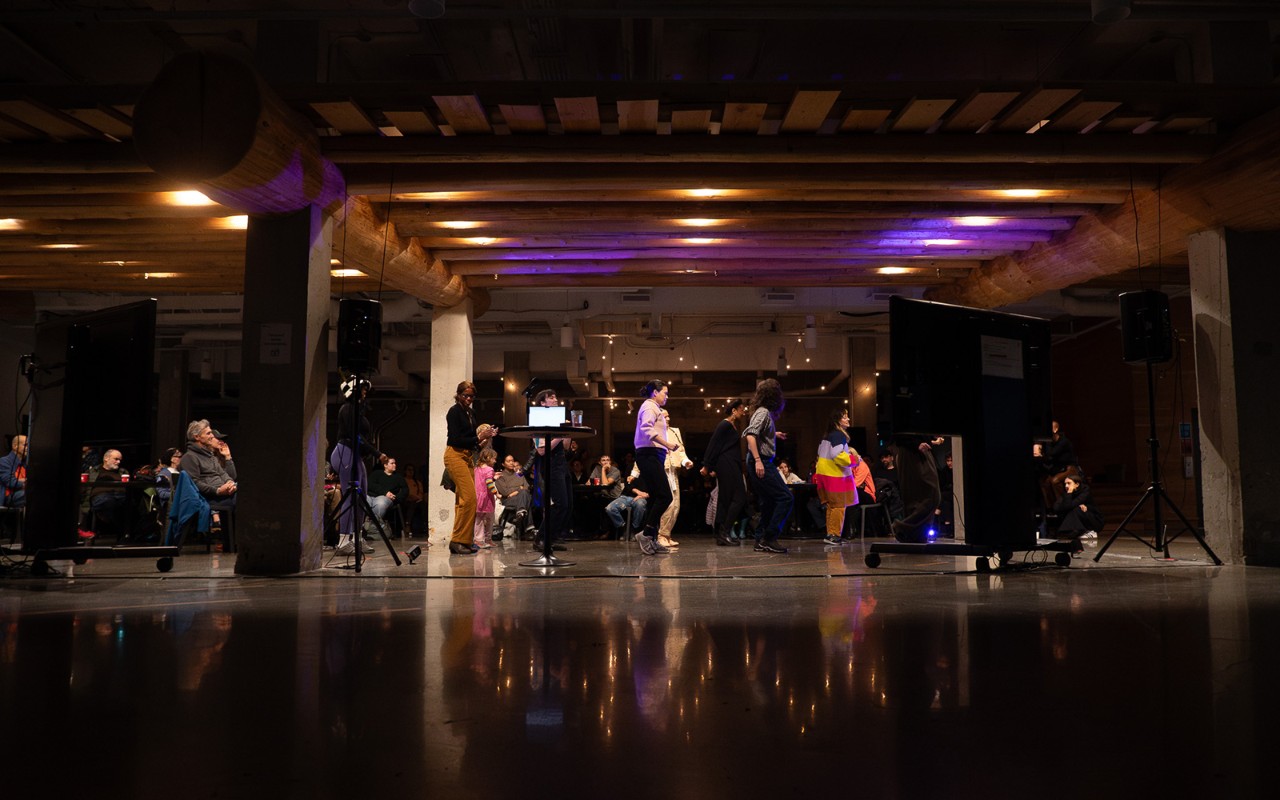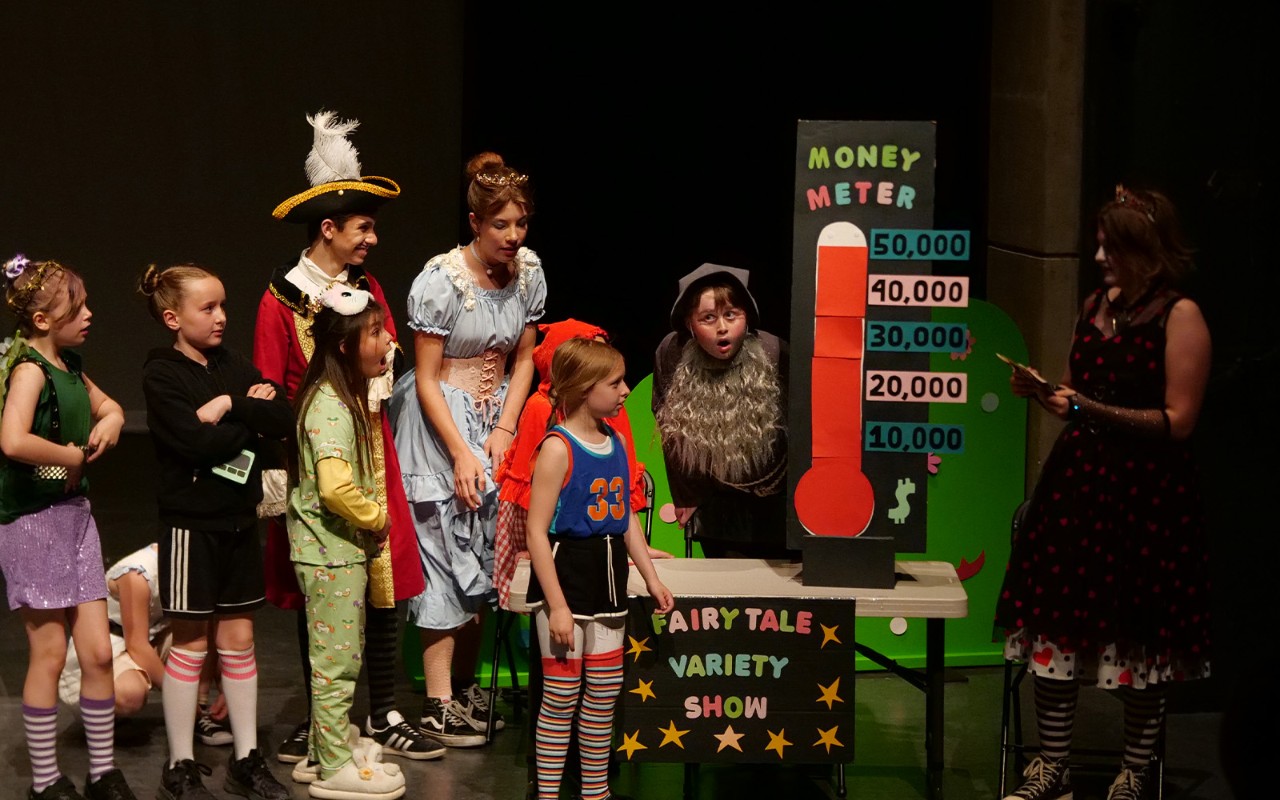Article, Social Justice, Community, Urban Issues
Meet Julia Aoki: administrator, writer, researcher, and advocate
We are delighted to welcome Julia Aoki as Program Manager at SFU’s Vancity Office of Community Engagement!
With her experience at non-profit organizations including Powell Street Festival Society, Megaphone magazine, and VIVO Media Arts Centre, Julia brings a wealth of knowledge to SFU’s Vancity Office of Community Engagement (SFU VOCE). We sat down with Julia to discuss how her search for Japanese Canadian community led to a longstanding practice of advocating for marginalized people in Vancouver’s Downtown Eastside neighbourhood.
This interview has been edited for length and clarity.
Julia, can I start by asking you to introduce yourself and your interests, inside and outside of work?
I grew up in North Delta with a small circle of Japanese Canadian family, but in a broader community that was predominantly white and, over time, it became important for me to explore what it means to be Japanese Canadian. The Powell Street Festival was my entry point largely because it is an intergenerational, diasporic space, and you don’t have to speak Japanese in order to participate. I began to volunteer there and over time, I took on short contracts which led me to become the Interim General Manager.
I was fortunate to happen upon a space that was so accepting and diverse, where there wasn’t a singular sense of what it means to be Japanese Canadian. It was the first time I met a queer community, and there were many strong women involved in the festival. They program all-women taiko groups for example, when, in Japan, this artform is historically for men only. The Powell Street Festival is open to generational layers of immigration—to prewar and postwar folks—and for me, it was a massive awakening to the history of internment. I’m a second-generation Japanese Canadian and, though internment isn’t part of my family history, I feel impacted by the dispersal and the fact that there isn’t a circumscribed Japanese Canadian community. We’re an assemblage that is coming together in the wake of a massive trauma.
The Powell Street Festival is located in the Downtown Eastside, a very politically fraught space within Japanese Canadian history, but also with the current community of socioeconomically marginalized people, who are disproportionately Indigenous relative to the larger Canadian population. Working there taught me to go beyond my own community. I got to ask, where do we overlap in our histories, our communities? And how can we work in a collaborative way toward one another’s interests?
What a wonderful way to introduce yourself! As someone who cares about space and the ways it is used or occupied, what continues to draw you to work in the Downtown Eastside?
To me, it's the most palpable expression of intersecting injustices in our region. It is an expression of rampant capitalism within the history of colonialism, deep-seated xenophobia and racism. Many of those social dysfunctions have been made bare and it's impacting people's lives right now, and it's a life or death situation. I have so much respect for the people who are doing the work there. And by that, I don’t mean all the folks who, like myself, are coming from outside the community and working for nonprofits, but the folks who are living under extreme duress and who do the work day in and day out to support the wider community.
I’m drawn to spaces that can bring local communities together and amplify their experiences in ways that align with larger social and political interests. At Megaphone magazine, where I worked from 2019-2023, I got to bring together my interests in cultural production and community building with a more immediate, material element. Our work wouldn’t ultimately solve the material injustices of people living in poverty, but we helped to alleviate the conditions temporarily by redistributing the organization’s income through workshops, programs, mentorships, and the vendor program. [The vendor program offers flexible work to people facing poverty and homelessness through sales of Megaphone Magazine and the Hope in the Shadows calendar.]
But even this model has its limitations. For many people the vendor program has a high barrier of entry, in that you have to be capable of standing outside for long periods, and you have to be able to withstand rejection. It’s really hard, but it’s one way that we could appeal to the wider public and support people with an income.
And in 2022, through Megaphone, you partnered with SFU VOCE to make a podcast series named Voices of the Street, after Megaphone’s yearly anthology of the same title. This project connects community-oriented work with academia and art. Can you tell us how you navigate working across these different spaces? And with VOCE being an office that spans these fields, are there any projects you’re looking forward to?
If I look for a thread of continuity across my interests in the different spaces where I’ve worked, I’ve strived to work in spaces that allow for access to resources in ways that are not overly determined or prescribed, and that retain a sense of experimentation and self-determination. At the Powell Street Festival that was through accessible and intersectional programming. At VIVO Media Arts Centre, where I was General Manager from 2017-2019, that was in the form of access to technology, resources, educational programs, and an archive of experimental media.
VOCE is so well positioned to both provide community access to some of the vast resources of the university, like access to space and presentation support. I’m also very interested in what I’ve seen called “knowledge mobilization” at SFU VOCE — how otherwise opaque, academic outputs are made relevant and immediate to the community. I’m excited to find these points of intersection here.
Find Julia’s writing about the Downtown Eastside in Walking Histories, Un/making Places: Walking Tours as Ethnography of Place, published in Space and Culture, and Tracing Histories in Oppenheimer Park: An Exercise in Cognitive Mapping, published in TOPIA.
Latest/Related Updates
-
December 18, 2024

December 18, 2024
Between October 30th to November 10th this year, the 21st annual Heart of the City festival animated the Downtown Eastside with over a hundred community-oriented events under the theme Threads of Connection.
-
September 25, 2024

September 25, 2024
The release of States of Injury — with Wendy Brown marks Below the Radar’s 250th episode—a major milestone since the podcast’s inception in 2018.
-
July 10, 2024

July 10, 2024
On June 22, the cast and crew of Project Limelight’s production of East Side Story were greeted with applause as a full house welcomed the young performers back to the Fei and Milton Wong Experimental Theatre stage.
-
January 10, 2024

January 10, 2024
Our Below the Radar podcast mini-series See How We Run! looked at local arts collectives and organizations, highlighting conversations about creation, spacemaking, accessibility, and self-determination within the framework of Vancouver’s cityscape.
-
August 15, 2023

August 15, 2023
With details of our 5-year anniversary celebration event to come, let’s take a sneak peek of the upcoming season.



